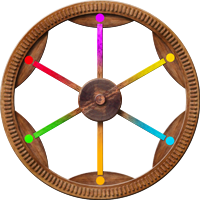What excites me about tantra: the revolutionary aspect of tantra
Tantra is the practice and exploration of sacred sexuality. Our sexuality is seen not as a biological imperative or a libidinal drive from our id, nor as the temptation of the devil to lead us astray. Instead it is approached as a gift from god or from spirit that enables us to experience the divine or spiritual dimension of our existence directly. It is one of our directest ways of experiencing god.
As such it is part of the mystical tradition of religious experience, embodied in Christianity by such figures as St Francis, Mary Magdalene and St Theresa, ecstatic models of divine bliss rather than "good for your soul" suffering; the sufi tradition, the Song of Songs, or Krishna and the Gopis, are parallel paths in other religions. The direct experience of god without a go-between is of course anathema to many priests and churches whose power and influence is based on being the intermediary between man and god. Many established churches have been quick to suppress sexuality with the weapons of morality, guilt and shame, simply in order to keep people small and in the priests' power. As the twentieth century has been the time of the emancipation and re-evaluation of women and the feminine, so the twenty-first century will be the time of emancipating and re-evaluating our sexuality in an honouring rather than an exploitative way.
So for tantra, sexuality is one important pathway for having a transcendental experience, going beyond one's own boundaries and experiencing oneself as part of something greater. The experience of ecstasy - of standing outside one's normal limitations and illusion of separateness, and of feeling one with everything – happens naturally in everyday life in the moment of orgasm or sexual union.
The sex act is one of many tattvas, gateways between ourselves and life around us, between the experiencer and the experience, where duality, separation, is transcended and there is a moment of oneness. Many paths of meditation seek that moment, as do rites such as fasting, ritual suffering such as flagellation, or power plant sacraments such as peyote and ayahuasca. But for the tantriki, the energy of sexuality, together with the equally important power of love, has firstly the important quality of being part of our everyday existence. Our intimate relationship and our own dance with love and sex become our spiritual path. There is no separation between life and spirituality. Tantra invites us consciously to explore these two energies that have the power to turn our lives upside down, to overthrow our best laid plans, and instead of trying to control or suppress them, to open to them, to surf them. In this way we can use their energy to pursue our path of personal transformation and of liberation from ignorance and suffering, and to grow into our greatness and our spiritual dimension. Love can move mountains; and sexuality creates new life, it is the origin of our being, so what more potent and appropriate force to create our conscious path and to manifest our sacred dream?
Secondly, pleasure becomes the path towards the truth, and towards god. This is a complete reversal of Christianity, where pleasure is selfish if not downright sinful. If we follow the path of pleasure with consciousness, with discrimination and with spirit, we will find pleasure that benefits the whole, that brings long-term value, and we will do the right thing not because we ought to (which creates resistance in a free spirit), but because we freely choose it as it leads to greater happiness. Pleasure is the guide on the path to truth – sat chit ananda, truth is the consciousness of bliss,
Our sexual energy, the passion in our sex, or in our hearts, or in our spirits, creates, inspires, initiates; the energy of our love, of balance and fairness, of tolerance and compassion, maintains; and our consciousness discriminates, and destroys illusion.






